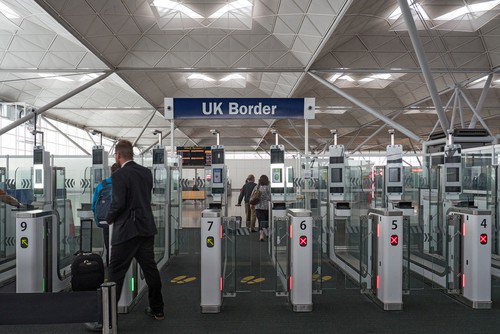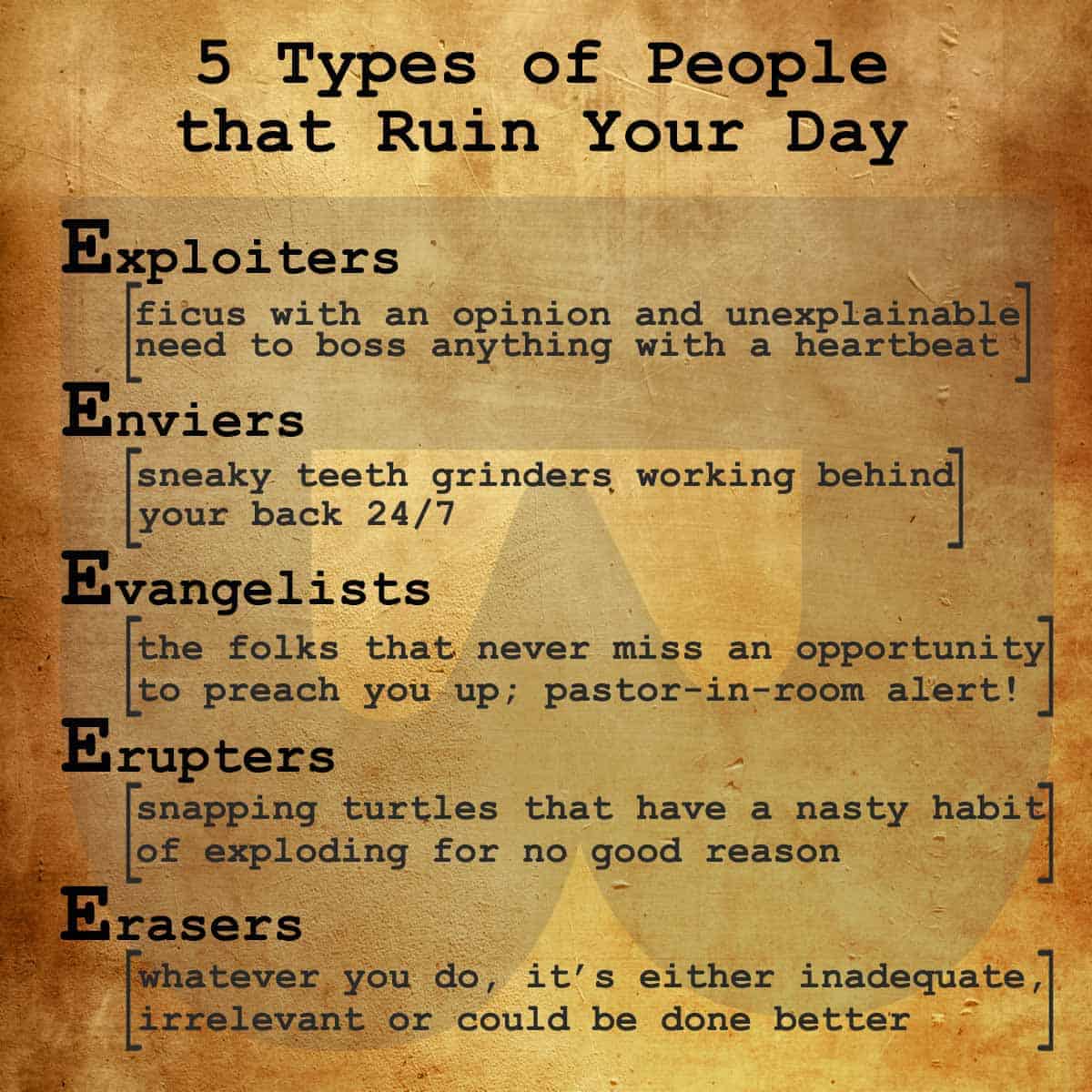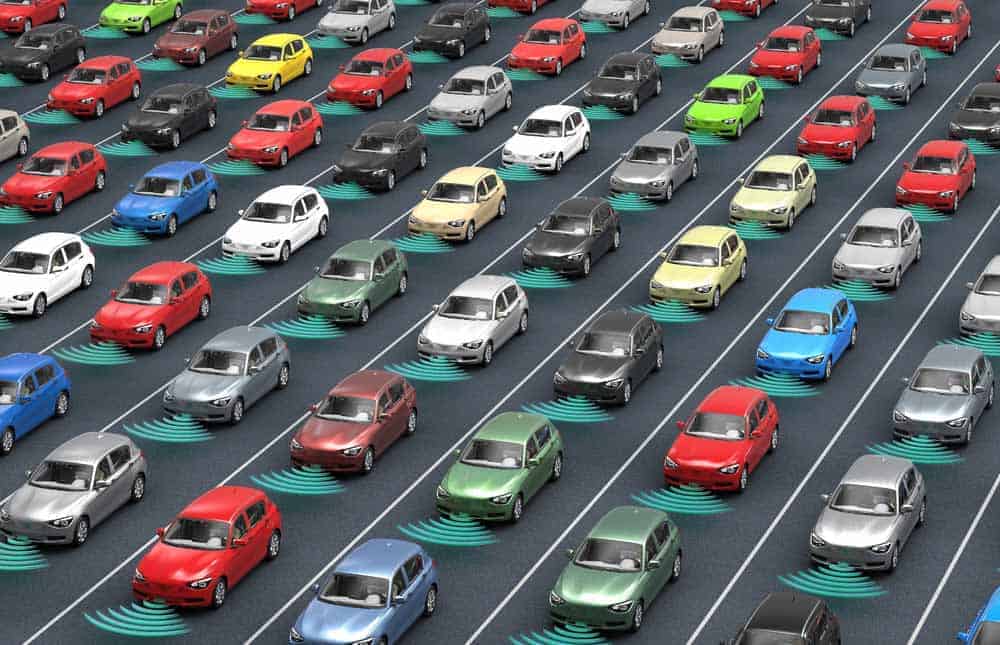What Will Give Edge to Europeans Against terrorism?
In less than 10 years, the European Union will become less exposed to terrorist attacks than USA even though there’s a direct
land connection and established routes to the terrorist centers such as Afghanistan, Iraq, Libya and Syria. That includes the prevention and elimination of grassroots terrorist attacks and lone wolves or all of those acting on their own, without direct control from these centers.
For the majority of Americans for example, these statements seem more like empty wishes or something coming from someone who doesn’t know the first thing about the situation.
Yet there’s one crucial difference in a way Europeans perceive security and what it takes to achieve the highest possible level of it. It’s the same difference that will make possible for them to prevent most of the future planned terrorist attacks on the EU soil. And we are already seeing it in action.
How to fight terrorism in the most efficient way
Many “experts” are claiming how the EU response or decision to answer this new challenge of preventing potential terrorist attacks came in the aftermath of the 9/11.
That’s not entirely true.
In case of Europeans, it was just the matter of slight adjustment of their current protocols and methods because, unlike USA, Europe has experience with waging full-scale wars on its soil. Widespread bloodshed is not a novelty. As a result, European intelligence and law enforcement agencies are operating in a slightly different way that their US counterparts.
9/11 was practically the first time any foreign party launched a direct attack against the US on US soil after the War of Independence. And the element of surprise was huge. We are seeing the consequences, even to this day.
In Europe, EU in particular, this is something almost every generation faced at least once. In retrospect, Europe hasn’t seen a century without war. For the most part of the history, wars, violence and bloodshed were more frequent events than peace and safety. That’s why people simply moved on with their lives after the latest Paris, Brussels and Nice attacks. You won’t see large monuments or hundreds of different perspectives (documentaries) on Nat Geo or Discovery like it’s the case with Americans and 9/11 terrorist attack.
All those centuries of exposure to such a violent dynamics, created a specific mindset, not seen at contemporary Americans. This is even more emphasized at Eastern Europeans whose indoctrination in a matter of personal and public safety starts already in elementary schools. For instance, you won’t find a single adult Eastern European who will pick up the backpack from the trash can like those two Americans did in New Jersey. As a child, you are growing up learning how it’s not wise to pick up a pen or some other “interesting” item from the ground because there’s a chance you’ll activate a bomb!
In fact, before 1990, most Eastern European schools had obligatory curriculum where they were teaching 8-year-olds how to behave in case of nuclear, biochemical or any other type of attack and how to recognize the potential threat. And we are not talking about 10-minute lecture. As you move on with the age, you are learning how to provide an immediate medical help and treat injuries. Even how to fire a weapon.
All that paranoia, made it relatively easy to form the Frontex. And Frontex is not just another advanced border control. It’s much, much more.
FRONTEX or the absolute control over the entire area and its citizens
 Ask any American about how he or she would feel about the government’s plans to tap into his or her private and professional life to collect various data such as habits, communications, movement and similar. The reaction will most likely be negative. Maybe even aggressive. If we step outside the private aspects of life, and cover only the public ones, they would still be against it.
Ask any American about how he or she would feel about the government’s plans to tap into his or her private and professional life to collect various data such as habits, communications, movement and similar. The reaction will most likely be negative. Maybe even aggressive. If we step outside the private aspects of life, and cover only the public ones, they would still be against it.
Ask that same question any European and you’ll receive a slightly different response. Maybe you’ll get the feeling of discontent, but deep inside, European man or a woman will have nothing against it.
Because, when all things are considered, there’s no other way. For the country to be safe, the system of control must know every last detail of every citizen in order to prevent illegal intrusions or radicalization of natives.
Europeans, forged through the centuries of wars and violence, are perfectly aware of this need.
For example, ask an elderly citizen of London about the direction to some famous spot. He or she will politely point you in a right direction. You’ll say ‘Thank you’, smile and walk away. But as soon as you look the other way, he or she will pull out the mobile phone and call the cops, informing them about the event, describing you in as much detail as humanly possible. Cops will forward the initial to MI5 (United Kingdom’s domestic counterintelligence and security agency) and your behavior will be filed. In addition, the quick security check will be performed.
This is a common behavior of the native citizens of every EU nation. Foreigners are noted and observed even though it may not appear that way.
But, in the same time, that same citizen is perfectly OK with the fact that the government’s security system has a file on him/her. Back in the old days, specifically in the Eastern Europe, this was a common practice of intelligence services. They had to know as much as possible about every single citizen to assess the level of potential threat to the system.
As we said, this paranoia didn’t just vanish over the night because the Iron Curtain was down. It merely evolved into more subtle and more global methods. Methods that are more suitable for the current situation and the necessity to defend a much larger area.
Welcome to Warsaw, the heart of the EU’s security surveillance system
Mike R. is a 34-year-old New Yorker who signed the new contract with the global GSM operator few months ago. He then bought a car. A nice, blue American-made sedan.
We could say that Mike’s credit card saw some action.
Life was great. Vacation was closing in and he had a brand new car to drive around. So, Mike decided to spend at least a part of his vacation visiting his aunt in Oregon. From there, he’ll fly to Europe to see the Eiffel Tower in Paris and finally understand what’s the fuss about that damn thing.
The next day, Mike goes to shopping. He needs gifts, new clothes and a few other things. All paid with his pre-approved credit card.
Of course, car needs gas. Once again, Mike takes out his credit card and fills the tank at a nearby gas station.
And off he goes to see his dear old aunt in Oregon.
Two hours on the road and Mike got hungry. A couple of miles ahead there was this nice little restaurant and Mike decides to take a tasty break. Again, a simple use of his credit card got him a nice, warm meal. He didn’t fail to tip the waitress either.
But while he was there, Mike got himself involved in conversation with a few fellows sitting at the next table. Cameras were placed to cover that exact area. They talked about the current political situation in the States. Nothing too serious or concerning.
What Mike didn’t know at the moment is the fact that those three guys he has spoken with being “flagged” as a potential threat. All three were members of some lame anti-government movement, but the FBI had each tapped just in case.
A couple of days later, Mike said goodbye to auntie, bought a plane ticket and boarded the American’s flight to Paris.
Once there, he followed the procedure and approached checkpoints. On one side, there were 6 gates for EU citizens. On the other, there were at least 8 for non-EU residents.
While he was waiting in line with people who were trying to enter the EU, he saw how EU citizens, who were on the same flight with him, are simply passing through some kind of frames, similar to what they have in the US. But these were somehow different. He noticed how each passenger stopped for a couple of seconds and looked up right, at a specific spot on the frame. After the green light would turn on, person would just walk through, without even showing the passport. To make things even more peculiar, there were only two cops monitoring that entire area.
Mike was thrilled with the efficiency of the system, only he couldn’t wrap his head about how it’s functioning. Until he noticed some commotion from one of those EU-only passages. He turned his head in that direction and saw some guy getting ready to pass through the frame. Suddenly, security personnel emerged, grabbed the guy and took him away.
“This one is fried, no question about that,” said Mike to himself and gave his passport to the officer behind the large white desk.
“Please put your arm here,” said the cop, pointing in the direction of a small covered box-shaped device on the right side of the frame that serves as the checkpoint. Once you pass through, you are officially in the EU.
“Just wave your hand, that’s all,” the officer instructed Mike.
Mike was confused. Why the hell would he do that? He’s here for the first time.
But, if he wants to see the Paris, this was the only way.
So he waved left and right for a couple of seconds until the nice, female voice coming from the machine said, “Thank you.”
The cop returned the passport and wished him all the best, granting him the entrance on the EU soil.
What Mike couldn’t see was the color of the flag light on the officer’s display. That machine he walked through just a few seconds ago scanned him and sent the data to the center where all those Intels are coming together to form the profile of a person. The light was orange.
So the moment he moved just a few feet away from the checkpoint, few armed cops popped in front of him, asking him to “please follow them.” The tactic is simple: let the person move away from the crowd to prevent a potential hostage situation or any other kind of threat for civilians.
Mike was shocked to say the least. He didn’t know what was going on. He lived his life as a law abiding citizen. Not once did he do something that could be even remotely considered as breaking the law.
Well…welcome to the future EU, guarded by the Frontex system in coordination with Interpol, FBI, CIA, MI5, MI6 and every other police and intelligence agency of the world.
 As soon as those cameras picked Mike talking with those alleged potential radicals, FBI marked his ass. Once they realized he was heading to Europe, they informed the Interpol, which informed the Frontex’ nerve center in Warsaw – the place where all those bits and pieces of life of every European citizen and foreigners come together to form the profile.
As soon as those cameras picked Mike talking with those alleged potential radicals, FBI marked his ass. Once they realized he was heading to Europe, they informed the Interpol, which informed the Frontex’ nerve center in Warsaw – the place where all those bits and pieces of life of every European citizen and foreigners come together to form the profile.
When Mike “waved,” he left the specific bio-ID – a detailed map of blood vessels in his index finger and fist, something specific to every human being just like a fingerprint. Passport check was enough for the system to turn on the orange light. A detailed debrief will do the rest.
So next time Mike arrives to the EU, the file with his name on it will have more than just a few pages. As soon as he “waves” his hand, the system will recognize him and officer behind the desk will have all necessary details about Mike. It’s only the question whether he’ll stay orange, go back to green or get “upgraded” to red.
This is not some Sci-Fi scenario. Few of these devices are already active in airports. The system has already been efficiently tested and put in practice. EU citizens with new biometric passports are entering the country without taking out their IDs.
Green, Orange and Red. Three levels of potential threat.
Orson Wells talked about “Big Brother,” an all-seeing eye, watching over the Americans.
In Europe, there are millions of “Little Sisters,” all connected in one central, focal point in the nerve center of Frontex, in Warsaw.
The idea is to collect as much information as possible about every EU citizen, but also every non-EU one, with particular focus on those who may pose a threat. This central system is already building up the database and entry points are being slowly equipped with biometric devices. Pretty soon, EU citizen won’t even have to take the passport from the pocket. The system will scan the chip attached to the ID and compare it with a specific biometric marker to confirm identity.
It’s the chip that contains every single collected information about that particular citizen, similar to that chip you probably have in your car key, used to collect data about your car every time your car undergoes the regular maintenance by the authorized service.
Depending on the nature of data, the system has on citizen, he or she will be marked with one of the security (threat) level colors.
Green means what it usually means. You’ll just walk through. It’s left to the security personnel to decide whether you should be checked additionally.
Orange means increased awareness. There was something you did that raised the alarm and there’s a need to check your luggage and perhaps ask you a few questions.
Red means you’ll probably fail to enter the EU soil.
But how will the system collect those intels?
 Remember Mike’s habit to purchase everything with credit cards and use his smartphone to inform his aunt about the arrival for instance? Every POS device on the planet is already equipped with data-collecting software, used by the retailers in CRM. It was just the matter of diverting those intels to the central in Warsaw, that’s all.
Remember Mike’s habit to purchase everything with credit cards and use his smartphone to inform his aunt about the arrival for instance? Every POS device on the planet is already equipped with data-collecting software, used by the retailers in CRM. It was just the matter of diverting those intels to the central in Warsaw, that’s all.
Add GSM triangulation of the signal, virtually invisible drones equipped with infrared cameras, numerous surveillance planes, more than a hundred satellites over our heads, and millions of security cameras covering every inch of the space and you have a comprehensive and efficient security network. Everything is done automatically, constantly and without any human influence. No more interviewing and taking notes. The software does everything without taking the leave of absence even for a second.
It’s about recording everything. From police reports, newspaper articles, internet habits, movements – everything.
Sounds intrusive?
Well, maybe to Americans. In Europe, people are embracing this increased surveillance and analyses. After all, we are willingly posting our daily habits on social networks so what’s the problem, right? Why not using everything there is to create something that will be known as uninterrupted travel.
The idea is simple. You just do your things. Everything is automated. Border crossing check and even the payments are done silently in the background. No more waiting in lines. Once you start the engine of your car, you can drive across the world without waiting in lines to cross the border or pay the toll.
When you think about it, we spend the biggest portion of our waking time waiting in line for something. And each time we stop for some reason, we are putting ourselves at risk of ending up as collaterals.
Because terrorists predominantly attack the crowded places. Airports, as a sure place with a crowd, are targets of choice for many of them. Busy streets, squares and large public closed spaces come next.
The largest threat is coming from the grassroots, domestic terrorists and lone wolves. They don’t have the need to cross the borders. Recent events taught us that practice of monitoring just the borders is useless. You need to expand. You need to cover the entire area within the borders.
To do that efficiently, you need an automated, software-driven system that collects data from billions of different points, 24/7, without stopping.
So if the system picks up the signal that you’re trying to acquire the information about how to make the bomb, or perhaps got involved in some radical actions (even the communication with potential terrorists), or that you have acquired an unusually large quantity of some domestic, ammonium and nitrate type of products, all those invisible eyes will start searching for you. And they will find you in less than a minute because with the new 3D face recognition software, it won’t take long before they pick up your last few positions and calculate your most likely direction.
Yes, have no doubts. Every European is about to willingly pose for the 3D photo of his/her head. Once in the system, the software will make the positive ID of that person in less than a second and add the position markup with the timestamp. Everything will occur in the background, without that person even being aware of the process. In return, he or she will not have to wait in lines anymore.
Just think how that will affect the business of abductions and trafficking. Or how simple it will be to track the movement of the perp after he or she has committed the felony.
What about illegal migrations?
It’s the reason why this new central system has been developed and implemented.
After the 9/11, five largest surveillance and security companies in Europe sat down to design the main matrix of the future security of EU.
Controversial as it may seem, the decision to let the CEO’s of these companies to tailor the future of European security is perfectly logical. They were the experts in the matter. And while it was obvious that each of these five had been predominantly considering the interests of shareholders, they still had to make sure that the overall plan and the corresponding network of different systems and devices are efficient. Otherwise, contracts won’t last for very long.
So, instead of playing with the potential disaster, they have implemented a different kind of strategy to keep their profits on a steady growth trajectory path – innovations.
For example, every year there’s a fair in EU where you can see the latest advances in a field of surveillance and security. The bulk of those solutions, originally developed for military use, is now redesigned for civic purposes and practically evolves on monthly bases.
As time goes by, the nerve center in Warsaw is acquiring more and more information. All those eyes, ears, personal contributions and police reports are building up, creating one of a kind database.
After just a few years in operative state, the system has already marked the critical entry points of illegal immigrants and preferred routes are now obvious which makes it easy to deploy larger surveillance resources to the area. A vast number of silent drones are monitoring every inch of the border with advanced night-vision cameras. Surveillance planes that can see the details of a single, small vessel from the distance of 20 miles are constantly cruising along the border. Every day, the EU sees less and less illegal border crossing because every day a new plane or a drone or a camera is added to the network.
In time, even though there is no physical border, Europe will become the heavily protected and almost impossible-to-breach fortress.
And it will happen sooner than across the Atlantic because there will be far less resistance (if any).
That’s the difference. The crucial one. Because, in a democracy, government can’t do much if public shows discontent and/or rejects some action. Europeans, aware of what it takes to prevent tragedies caused by someone’s deliberate intention, have nothing against the plan of extended surveillance and control. They know that it is in their best interest that Warsaw nerve center starts operating with 100% of potentials. It’s the only way to control the vast area of EU and protect close to billion of its citizens.
Will Americans accept something like this in near future?








